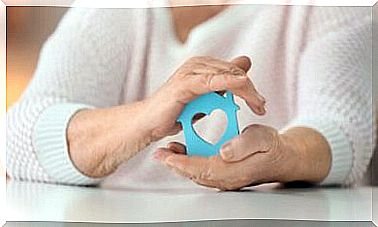A Contagious Virus (Stress)

It is often said that there is no such contagious feeling as a bad mood. Living with a person accustomed to issuing continuous attacks, negative value judgments and constant criticism, ends up undermining us from the inside to an almost desperate point. Surely you have experienced it in person on occasion. As in any other moment, you have felt what a simple smile full of joy and sincerity can do inside you, instantly infecting you with a clearly positive emotion.
But what about stress? Did you know that this dimension is by no means exempt from also being a “virus” almost as contagious as bad moods? Experts tell us that those who end up being the victims of the influence of other people in this regard, suffer what is known as “second hand stress”. Something curious, undoubtedly, but not because we are curious we must underestimate it, because it can be just as serious.
THE STRESS OF PEOPLE AROUND OUR
Let’s take a simple example. You live with a partner who, for work reasons, is exposed to many pressures, many obligations, objectives to meet and demands to assume. Little by little, this work stress also extends to the family environment. His mood changes, the moments shared at home are full of tension, he sleeps badly at night and his treatment is also different. How will we feel? Little by little we will notice a certain suffocation due to that circle of stress and anxiety, the house will become a small black hole in which communication will be greatly affected and where those moments shared in common will no longer have the quality of before.
Frustration and anxiety will appear, and almost without realizing it, we will have caught the other person’s stress. This fact is demonstrated for example by the research carried out at the Dresden University of Technology. Tania Singer, scientist and director of the project, explains that someone subjected to high stress can generate the same response in our body. It should be noted that there are people more sensitive than others, but in general, living or spending a lot of time with a stressed person will cause our cortisol levels to rise significantly in the blood.
And be careful, there is still another data that we cannot ignore. Children are the most vulnerable to this type of stress, which fathers and mothers can transmit to them at home.
MANAGING STRESS AMONG ALL
We could say at this point that the most common stress in which we can be affected is the one we experience at home. It is possible that the origin is at work, in those work pressures. Problems that overtake us and that we then project into our family life. There are many times when we fall into stress almost without realizing it, little by little we accelerate, we prioritize some things over others, putting even more pressure on ourselves. We eat badly, we sleep badly and we project our anxiety on the people around us, also on children. We stop having time for what is truly important. What can we do?
If someone very close to you is experiencing a period of high stress, you should make them see it. Sometimes many people are unable to realize, they think “that it is normal”, that this pressure is necessary to achieve a goal. But it must be made clear, when one is losing health there is no greater objective than balance itself, than life itself. And more if that state is affecting others. We must show them what their personal situation is doing to themselves and to others. It is worth helping him to set limits and to understand, in essence, what is important: health, tranquility, balance, the affection of the family, the couple, the well-being of the little ones …
If you are affected by the stress of a colleague, friend or other relative, it is worth mentioning it as well. Make him see the need to put another rhythm in his life, or else he will end up losing his own health and he will also see how the people around him can get away from them. You too must “open your protective umbrella.” Stay calm and avoid being affected by their reactions, their anxiety, their rhythm … be patient and transmit an adequate calm with which the other person can benefit. Now, if you see that it is impossible and that you are also losing your own health because of that person who does not allow himself to be helped, or who does not use improvement strategies, you must make a decision. Our balance and our happiness also comes first.
Image courtesy: Alejandra Niedermaier.









